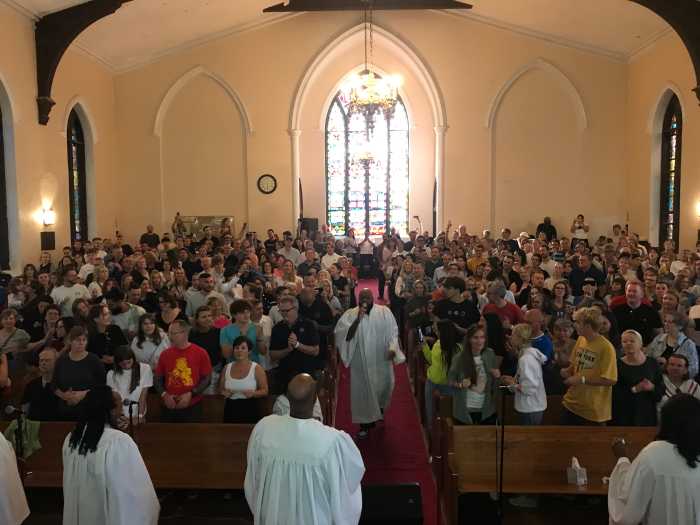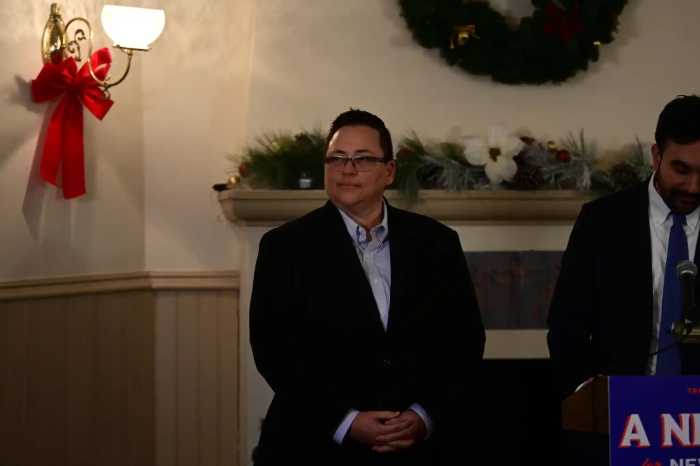Homeless families and individuals in NYC shelters waiting for permanent homes won a victory in court on Thursday that requires landlords to hold their apartments while tenant casework is being processed.
The ruling upholds a temporary restraining order barring Mayor Eric Adams and the city’s Department of Social Services (DSS) from eliminating the unit hold incentive — one-month rent payments to landlords that ensure apartments are held for prospective tenants while their housing paperwork gets processed.
The Legal Aid Society, representing Win (Women in Need) shelters and other advocacy groups, sued DSS on June 25 over its plan to shut down the incentive. DSS claimed it was no longer needed as processing times have gotten faster.
The Aug. 21 ruling was the second win for the plaintiffs after DSS planned a June 30 end to the program, which has been in place since 2017. A preliminary injunction was granted that required the unit-hold payments remain while the case was litigated.
Quinn: NYC must ‘fully comply with the law’
Plaintiffs in the case maintain that unit holds are important for getting people out of shelters and into permanent housing. Christine Quinn, president and CEO of Win, and former speaker of the NYC Council, applauded the judge’s decision while criticizing the Adams administration.
“New Yorkers are crying out for change, yet it seems the Adams administration will go to the ends of the Earth, including through frivolous legal action, to make life even more difficult for New Yorkers in need,” Quinn said. “We are pleased that a judge has again ruled the unit hold incentive must be preserved, and look forward to seeing Mayor Adams and DSS fully comply with the law.”
She also described the unit hold as a “key tool” for helping homeless New Yorkers.
“This unit hold policy has been critical and very helpful for getting people out of shelter and into permanent homes,” Quinn said. “Doing away with it would have resulted in people staying in shelters longer, which is the last thing we want, particularly as it relates to children.”
A spokesperson for DSS told amNewYork that the incentive served as a stop-gap solution to address the “lack of robust mechanisms” for processing rental subsidies to secure housing that is “quickly” leasing up.
“Last year, we rolled out a technological overhaul to reduce the agency’s long-standing reliance on manual tracking and outdated systems, which were more prone to inconsistencies resulting in processing delays,” the spokesperson explained. “The full implementation of the new end-to-end processing system and capital upgrades has equipped the agency to comprehensively track and streamline applications to meet processing targets while realizing fiscal efficiencies by phasing out the use of short-term fixes.”
According to court documents, DSS’s policy change is “arbitrary and capricious” since it lacked “any statement [of] rationale.” The documents also stated that ending the incentive would deepen the homelessness issue, increase shelter stays and cost the city more money.
DSS also explained that the paperwork — a rental voucher program called City Fighting Homelessness and Eviction Prevention Supplement (CityFHEPS) — is costly. According to a report this year, the voucher program will cost more than $1.1 billion in 2025, which is more than twice the cost in 2023.
“Since the start of this administration, spending on CityFHEPS has increased from $250 million a year to a projected $1.25 billion in fiscal year 25 and it is important that the city take a fiscally sustainable approach to ensure we continue to preserve this vital resource for vulnerable New Yorkers as other levels of government have consistently defunded rental subsidies programs,” the DSS spokesperson said. “We hope advocates use their platform to call on other levels of government to prioritize funding for rental subsidies as the city continues to fill the gap year over year.”
It is unclear if DSS will appeal the ruling.



































